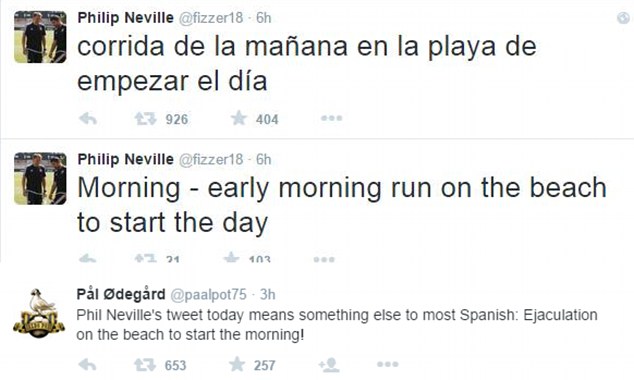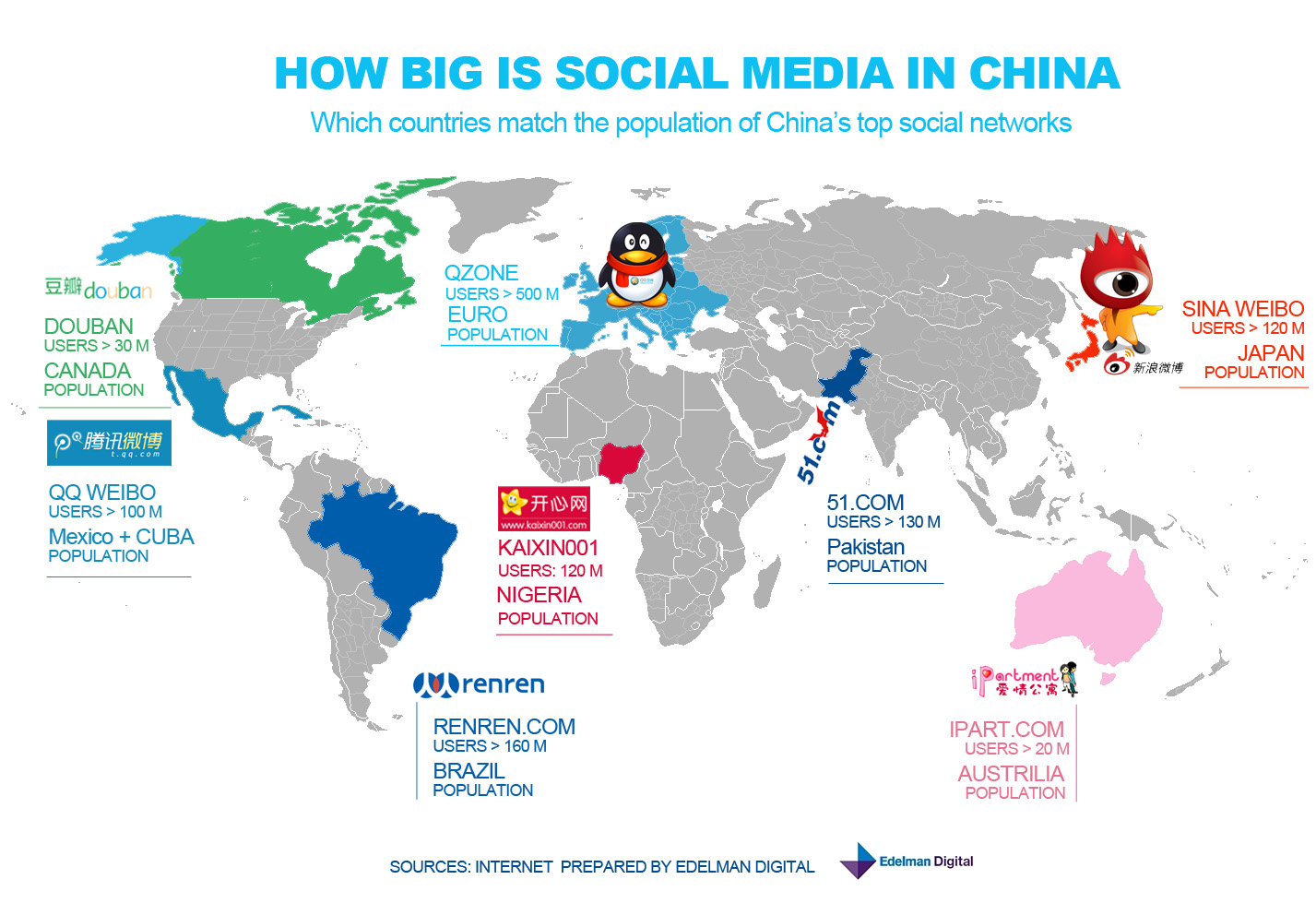As brands globalize online and begin penetrating new customers abroad, they are faced with the immediate struggles of scaling a local market team. While doing so can be difficult in general, personalizing the brand while keeping the company culture can be extremely difficult.
Here are some reasons why you can’t take such a large initiative too lightly.
LESSON 1: YOU CAN’T JUST MACHINE TRANSLATE YOUR ENGLISH POSTS
Philip Neville automatically translates his tweets from English to Spanish. The unacceptable and embarrassing result can be found in the comment above.
LESSON 2: GO WHERE THE MARKET IS
Additional in-market effort is unavoidable when you consider the many different social networks that are specific to any given market. Take China for example (data shown above). Your current social media team may not be able to navigate these sites – and they are what is essential for success in the market.
LESSON 3: PLAN GLOBAL CONTENT AHEAD OF TIME
When decision makers at a global company only can understand marketing content in one single language, it becomes imperative for them to know what is happening ahead of time. Us social media marketers are usually trained to work in the opposite way; quickly. For global content outside of a main region, it’s best to tiptoe into it and plan out the strategy well in advance to ensure all stakeholders agree with the content and the culture being built in the new markets.
LESSON 4: DON’T JUST CHOOSE ANY NATIVE SPEAKER
Just like how you did your due diligence to hire marketers in your primary market, the same type of process should be adapted to fill the chairs in secondary target markets. All too often, companies rely on solely a referral from someone on the team that knows a native speaker. Proceed with caution in these cases. Just because someone knows a language, does not mean they understand customer engagement and content marketing as a whole.
LESSON 5: DON’T MIX REGIONAL MARKETING MESSAGES
Delta felt this firsthand. As an airline that operates globally, they should accommodate all customers in all languages at all times. In the controversial tweet above, the company tweeted a World Cup reference to Ghana without doing the necessary research needed to know that there are no giraffes in the country of Ghana. Not only does a snafu such as this turn off the entire country of Ghana, but even their English-speaking followers around the world will doubt their knowledge of the markets to which they fly.




